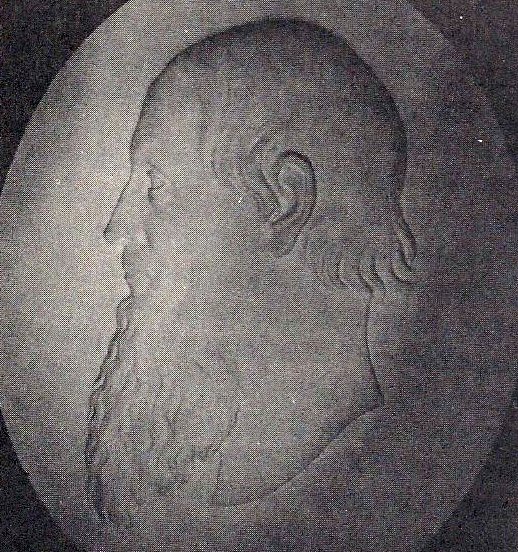Georg Muench
Born in 1801, Georg Muench joined his older brother, Friedrich, in Missouri in 1837, embarking on the day he married his second wife, Charlotte Dorothea Strack. His first wife, Sophie Soldan of Frankfurt, had died in childbirth in 1834, when the Giessen Society had arrived in Missouri.
Like his elder brother, Georg had served as Lutheran pastor in the church at Nieder-Gemuenden. He was known for his dry, sardonic wit and a fine voice. However, while his brother tended to enjoy being a writer and philosopher, Georg tended to be more of a “do-er.” In politics, for instance, Friedrich tended to give speeches and communicate strategy, and served in the legislature or as a delegate to conventions, while Georg did the local behind-the-scenes work, implementing what needed to be done in pursuit of their goals. Georg enjoyed working with his hands, in such pursuits as beekeeping, and he became known as an accomplished woodworker and implement maker. He built his own rifles for hunting, and they became much in demand. After the death of his second wife, Georg, now 47, returned to Germany in 1848 and proposed to 31-year-old Emma Wolf and brought her back to Missouri. In 1859 Georg sold his Lake Creek farm near Dutzow and moved to Augusta, Mo., about 10 miles away on a bluff above the Missouri River. Georg would become a major grape producer and small wine producer in Augusta. His vineyards would supply grapes for the new Augusta Wine Co. formed in 1867, a cooperative that was dissolved in 1884. His son, Georg Jr., would later found the Mount Pleasant Wine Co. in 1889.* The region later became the first designated wine grape area in the United States. Although there is no evidence to back up claims that Georg participated in the abolitionist network of safe houses known as the "Underground Railroad," he clearly played a prominent role in helping escaped slaves find freedom. For instance, in 1863 he led the creation of a 50-man posse to rescue and set free a runaway slave who had been recaptured in Augusta.** Held in high esteem as a community leader in his adopted town of Augusta, Georg died in 1879. *This paragraph has been edited to correct a common misconception. Although Georg Sr. began the grape-growing and wine-making operations at his Mount Pleasant home, it was his son, Georg Jr., who began the Mount Pleasant Wine Co. -- J.M., March 2013 **This paragraph was changed to reflect the historical record. According to Anita Mallinckrodt, although historians do not have evidence at this time that Georg played an official role in the antebellum Underground Railroad operation, his leadership in this 1863 incident, and at least one other similar event earlier that year, shows a high level of support for abolitionist activities. -- J.M., March 2013 |

